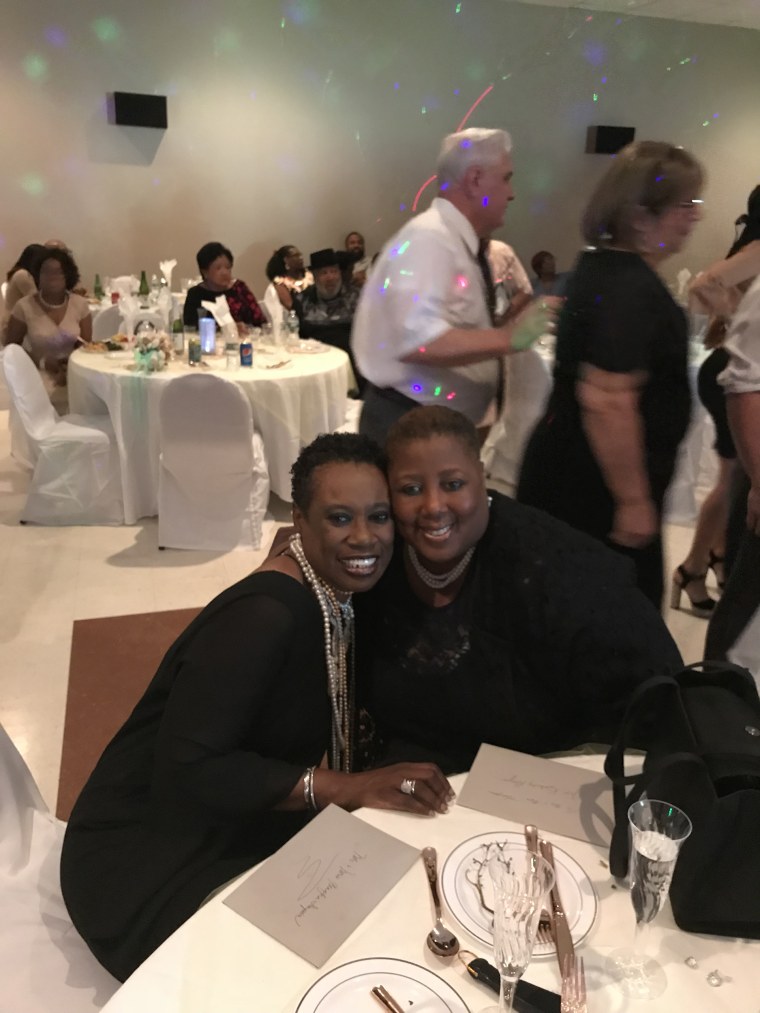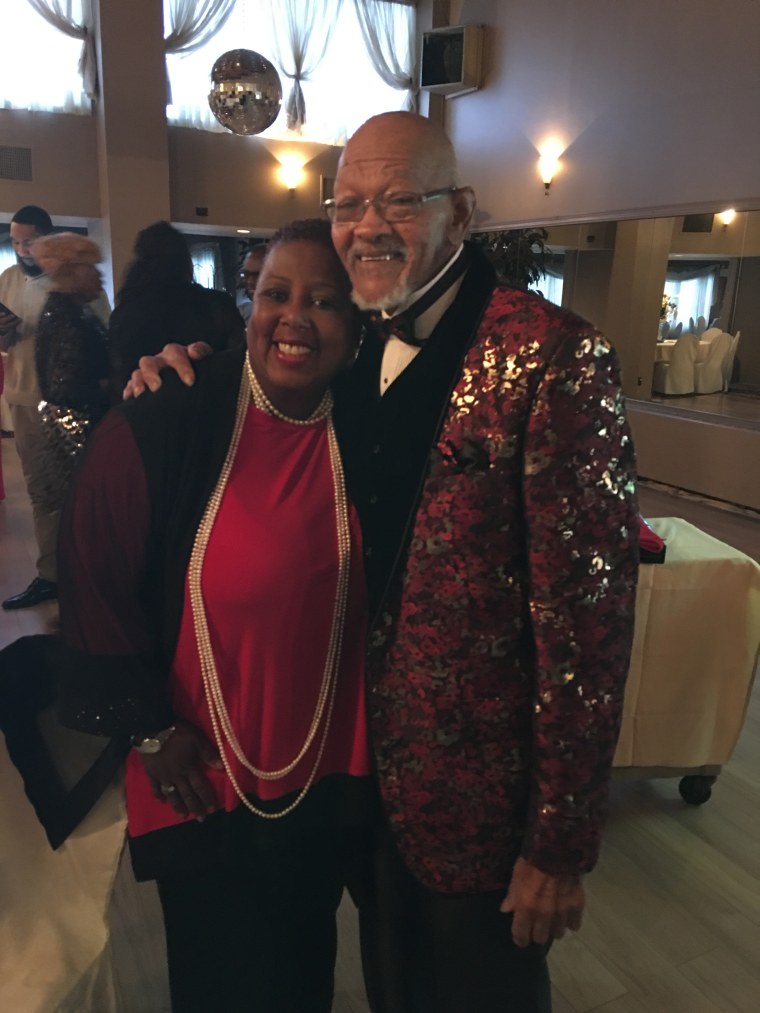Kim Hayes was preparing for an outdoor press conference in New York City last August, when she suddenly became very hot. Everything started spinning and she was covered in sweat. Someone noticed she looked unwell and helped her over to a bench.
“I was just kind of slumping down,” Hayes, 58, a nonprofit consultant in New York City, told TODAY. Moments later, she collapsed and an ambulance took her to New York-Presbyterian Hospital.

An urgent wake-up call
Since 2002, Hayes has had high blood pressure, and she was diagnosed with diabetes in 2017. She thought she had been managing both conditions well, but hadn't been taking her medications regularly. Her busy schedule made taking pills at the same time almost impossible. She’d spend much of her day in meetings, on conference calls and traveling. Sometimes, she put off meals until late in the day.
“I’d look up at 8 p.m. and I hadn’t eaten. So if I haven’t eaten, I can’t take the medication,” she said. “It was also a combination of feeling like I don’t really need them and that medicines can sometimes bring on other side effects."

The cardiologist admitted Hayes to the hospital and ran more tests, which revealed she had fatty liver disease and was beginning to experience heart failure. Hayes was devastated.
"I had never been hospitalized before. It was coming full circle with the fact that my body was really shutting down," she said.
What women need to know
Hayes is like so many other women. Her cardiologist, Dr. Icilma Fergus, said she often hears her female patients say they put their health second or don’t realize how serious certain diseases are.
“It’s very common. I think it’s just the matriarch and mother instinct,” Fergus, the director of cardiovascular disparities at Mount Sinai Hospital in New York City, told TODAY. “Both blood pressure and diabetes can be silent killers because you don’t feel pain and you may not see anything until it is too late,” she added, reflecting on why women don't get help sooner or put their own health on the back burner.
Unchecked stress, like Hayes experienced, can make heart conditions worse.
"Mental wellness is certainly a risk factor because when you're stressed out, your stress hormones get activated. They increase your heart rate and increase your blood pressure," Fergus explained.
Fergus encourages patients to participate in activities like exercise or meditation to release endorphins, which help to reduce stress. Fergus noted it’s important for people to go for annual wellness checkups so a doctor can detect changes from year to year. Proper treatment and lifestyle adjustments can reduce a person’s risk of having adverse outcomes.
“Heart disease is preventable if you’re engaging in the right management,” Fergus said.

According to the American Heart Association, cardiovascular disease is the No. 1 killer of women — yet most women don't think to be concerned about it.
“Heart disease can exist from any age, starting in the 20s,” Fergus said. “It doesn't necessarily need to be a heart attack, but you can get an irregular heartbeat or you can get pain … palpitations or you can get an infection called pericarditis.”
Since her hospitalization, Hayes has been taking her medication regularly, sleeping enough and hydrating with water instead of the ginger ale she once loved. She tries moving more and changed how she eats, focusing on more plant-based options. Her schedule is still hectic, but she puts herself first and has even lost 20 pounds. Hayes is sharing her story to encourage others to take care of their health.
“I hope that that other women will hear the story and get inspired to get themselves checked out,” she said. "I really learned that you have to listen to your body. We cannot, as women, overwork ourselves."

